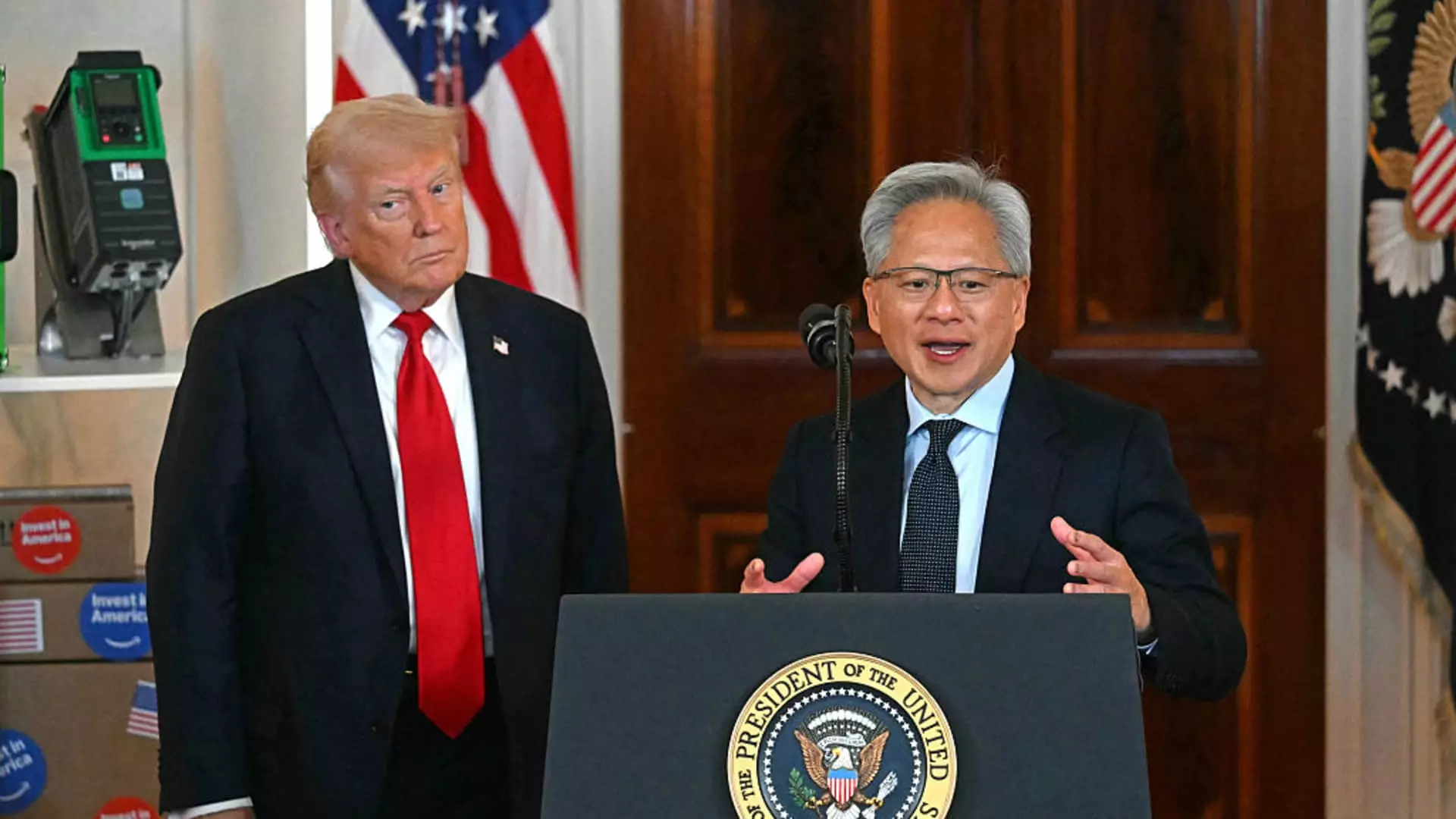The recent decision by President Donald Trump to permit U.S. technology giants Nvidia and AMD to sell advanced AI chips to China in exchange for a revenue share strikes as a dangerous retreat from America’s strategic edge. While proponents might argue this move fosters market access and economic gains, it fundamentally undercuts the vital pillars of national security. Free nations that lead in technological innovation possess a decisive advantage over adversaries—an advantage that is not only economic but also military and geopolitical. Allowing China to access cutting-edge AI chips, despite the claims of benign intent, weakens this advantage at a critical juncture when technological supremacy defines global influence.
This deal appears less like a strategic win and more like a capitulation motivated by short-term revenue motives, at the expense of long-term national security interests. The very essence of technological dominance—especially in sensitive sectors like AI—is built on exclusivity and control. Diluting this through revenue-sharing arrangements risks enabling China’s military buildup and intelligence capabilities, which could threaten regional stability and American sovereignty. The subtlety of such economic concessions, packaged as normal business transactions, masks a dangerous dilution of America’s leverage and technological superiority.
Corporate Loyalty vs. National Loyalty: The Dangerous Compromise
Leaders in the private sector like Nvidia often defend their dealings by emphasizing innovation and global competitiveness. Nvidia claims that its chips help attract developers worldwide and maintain America’s leadership in AI development. Yet, this narrative sidesteps the central question: at what cost? When American companies prioritize market expansion and profit margins over national interests, they risk betraying their fundamental duty to protect the country’s strategic assets.
The argument that these chips do not enhance military capabilities ignores the broader context of AI’s dual-use nature. AI chips designed for commercial applications often have significant military implications—improving command systems, autonomous weapons, surveillance, and reconnaissance systems. To deny the potential military uses of such technology is disingenuous. Furthermore, by facilitating exports under the guise of economic necessity, American firms inadvertently aid China’s military modernization efforts—a consequence that national security experts cannot ignore.
The case also exposes a troubling lack of foresight. If the U.S. fosters a climate where companies are incentivized to ignore security concerns in pursuit of profits, the long-term strategic damages could be irreversible. Private companies must recognize that commerce without strategic boundaries is a gamble with national security.
Political Consequences and the Breakdown of Strategic Unity
The Democratic Senators’ open letter underscores a bipartisan recognition that surrendering AI technology to China is a reckless gamble. Their concerns about surrendering U.S. technological dominance must not be dismissed as partisan politics; rather, they highlight a fundamental debate about the role of government in safeguarding national interests.
Allowing these deals to proceed signals a troubling shift in U.S. policy—one that potentially undermines longstanding efforts to maintain technological superiority. The administration’s willingness to negotiate revenue-sharing arrangements affirms a landscape in which economic interests are prioritized over security. This sets a dangerous precedent: that national security can be commodified and outsourced to corporate interests and foreign regimes.
Moreover, China’s apparent reluctance to fully accept Nvidia’s return—urging domestic companies to shun U.S. chips—makes the point that these concessions may be short-lived or ineffective. The damage to the trust and strategic partnerships that underpin U.S. global leadership could be profound. If alliances are eroded and technology is increasingly bifurcated, the U.S. risks falling behind in the AI race entirely.
The Way Forward: Defending American Innovation with Strategic Patience
The core issue is not merely about the chips themselves but about the underlying philosophy of technological sovereignty. America must reassert its leadership by imposing clear boundaries on technology exports that threaten national security. The pursuit of economic gains cannot justify the erosion of a competitive advantage that has historically kept adversaries at bay.
Encouraging innovation should go hand-in-hand with safeguarding the principles that make America a leader in the first place. As global powers compete for AI dominance, the U.S. must prioritize strategic autonomy—investing in homegrown research and development, tightening export controls, and refusing to barter its technological future for short-term revenue. Failure to do so not only diminishes America’s influence but also endangers its security in the decades ahead.
The decision to commoditize national security and strategic technology is short-sighted and perilous. Instead, pragmatic leadership requires understanding that true economic prosperity is rooted in technological innovation driven by national interests—an approach that eschews reckless compromises. If the U.S. continues down this path, it may eventually find itself technologically isolated and militarily vulnerable, a far cry from the global leader it aspires to be.

